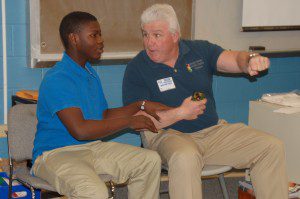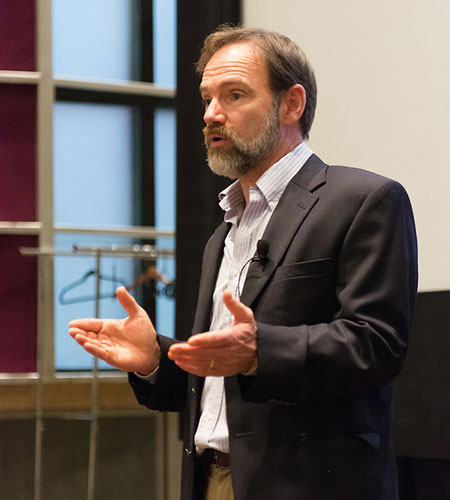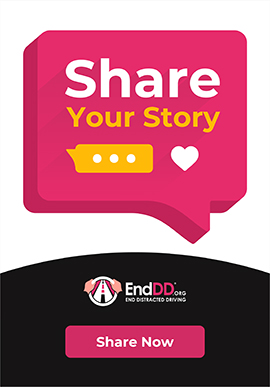By Joel Feldman, Founder of EndDD.org and The Casey Feldman Foundation

April is National Distracted Driving Awareness month and I will be participating in events next week as Pennsylvania and Delaware join other states in announcing the adoption of distracted driving awareness initiatives for April.
I have been fortunate to have had the opportunity to personally speak with more than 10,000 teens and adults over the last year as part of The Casey Feldman Foundation’s EndDD.org program. I have been joined by more than 175 professionals who have volunteered their time to speak with teens, and collectively, we have spoken with more than 75,000 teens across the country with many more presentations scheduled for April, May and June.
I knew that teens often drove distracted but I did not realize that more than 90% of the teens would tell me that their parents often drive distracted with them in the car. I also learned that when many teens are driven by their friends’ parents in car pools, those parents will also text, use cell phones, eat, apply make- up or engage in other distracted activities as they drive. Teens are also driven by other teens who are distracted. It was apparent to me that it was difficult for teens to speak up and ask mom or dad, a friend’s parent, or their friends to drive safer even when they were scared for their safety. So I began using role play exercises and other methods to explore how we could make this uncomfortable conversation more comfortable.
The results are encouraging. When taught how to express their concerns in a non-confrontational manner, given the opportunity to practice that conversation and to become part of a “team” to help the driver drive safer by offering concrete solutions, teens will speak up. In doing so, many feel that they are also showing concern for their driver’s safety.
Even though we all see distracted drivers on a daily basis I am encouraged by the response of teens and firmly believe that our young people will lead the way toward changing our driving culture.
To learn more about the EndDD.org program or to schedule a presentation in your community e-mail [email protected]<mailto:[email protected]>




